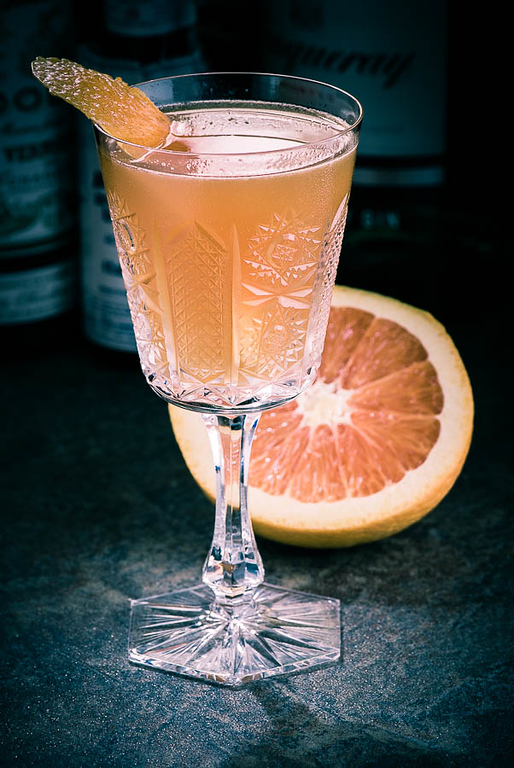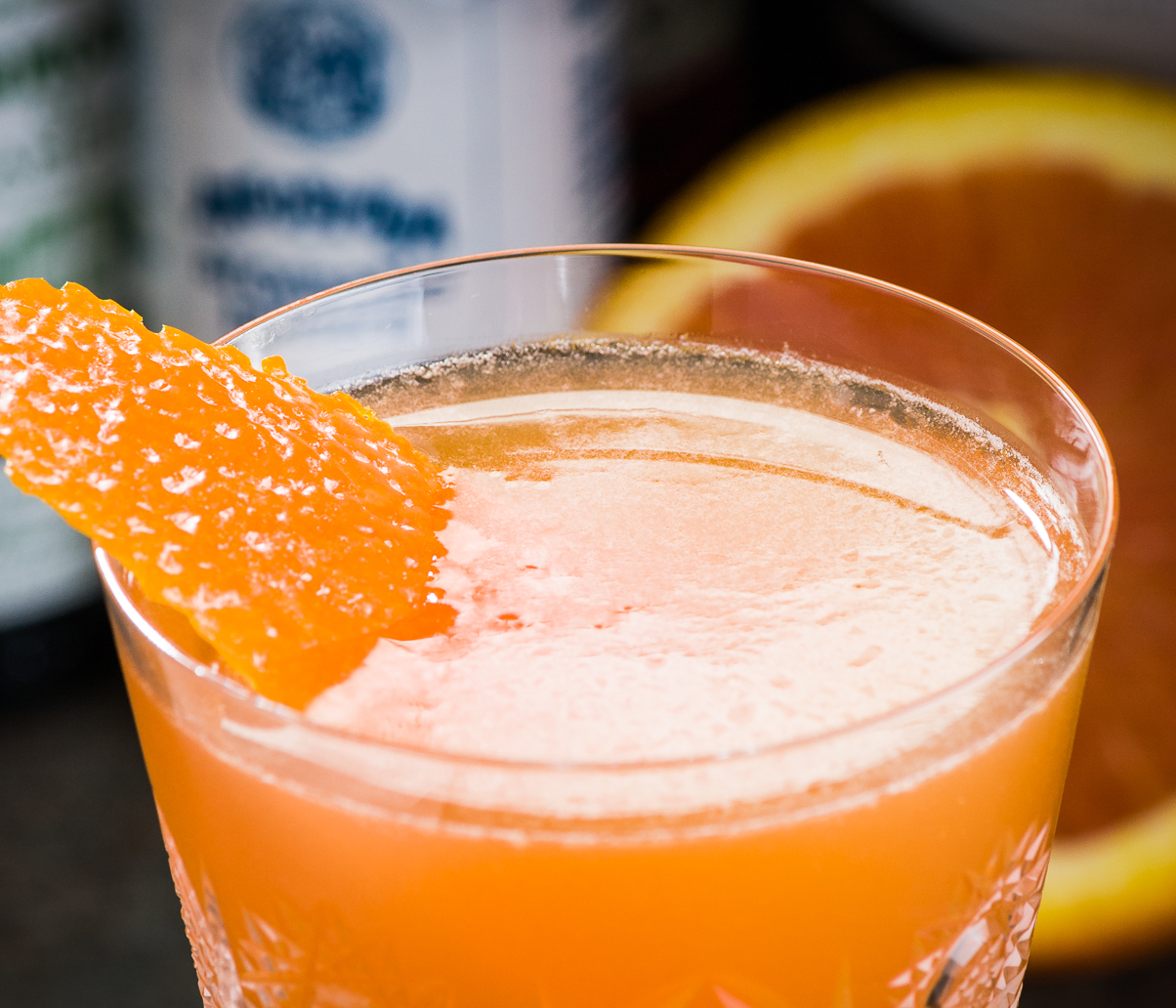I still remember the first time I filled out a tax form. I felt very official and bureaucratic; I was an important part of the American economy.
Of course, I didn’t make enough money that year to actually owe any taxes—I was filing to get all my withholding back. But still…
Americans started paying income taxes in 1913, and it certainly didn’t take long for someone to come up with a cocktail to, shall we say, “celebrate” the opportunity.
There is no record of who originally made the Income Tax Cocktail, or when, but that might be because it was “in the air.” The earliest published recipe is Harry Craddock’s 1930 Savoy Cocktail Book, which shows it to be a Bronx Cocktail with a couple dashes of bitters. Given how hard it is to get the flavors of the Bronx to hold together as a cohesive drink, adding bitters is a natural embellishment, probably tried in many places at many times. Somewhere along the way, someone gave it the name “Income Tax.”
Alas! that the name stuck. They could have called it anything else, even “Bittered Bronx,” but no. It’s a delicious cocktail saddled with an unfortunate name. It amuses us to drink it on April 15, but few want to think much about something called The Income Tax the rest of the time.

The way Craddock describes it, the Income Tax is half gin, half a blend of French and Italian vermouths, with the “juice of ¼ orange” and a dash of bitters. At 2:1:1 (plus some orange), this is a very good drink, but I prefer a modernized, dried out version that Gary Regan published some years ago in his Joy of Mixology:
- 2 oz Dry Gin (Tanqueray Gin)
- 1 oz fresh (!) orange juice
- ¼ oz French Vermouth (Dolin Dry)
- ¼ oz Italian Vermouth (M&R Rosso)
- Angostura bitters to taste
Shake well (or stir); strain into well-chilled cocktail glass.
I like a good juniper-forward gin for the Income Tax. The ubiquitous Tanqueray is very good; so, too, Philadelphia’s Bluecoat. I really like Regan’s 8:1:1 ratio, much drier and ginned up than the original; there is clearly room for personal preference in this recipe.
Regan emphasizes the orange juice, too, compared to Craddock’s original version, and it is a good choice for modern tastes. Orange juice is a wild card — you’ll want to tune your recipe to the sweetness and citrus of your local produce. In my market, this is a good time of year for Cara Caras, but Valencias would be good, and there’s always the ubiquitous Navel. A man has to know his orange’s limitations.
I’ve stayed with Angostura bitters here, and doubled it up, but the Income Tax is a fine platform for bitters experiments. (Hint: the guys at Bittercube Bitters have something they call their “Trinity” blend — two parts of their Bolivar bitters, one part of their Orange bitters, and one part of their Cherry Bark Vanilla bitters. A couple dashes of that, plus a dash of Angostura, makes for a very pleasant end to the Income Tax season. And don’t forget to try it in a whiskey Old Fashioned, too. When your taxes are done.)
“Feeling bitter in the Bronx — the Income Tax Cocktail” at cold-glass.com : All text and photos © 2013 Douglas M. Ford. All rights reserved.

Reblogged this on I Can't Stop Raving.
What a valuable public service for one of the darkest days of the year. Huzzah and thank you.
Yes, some days do seem darker than others. Or at least busier…